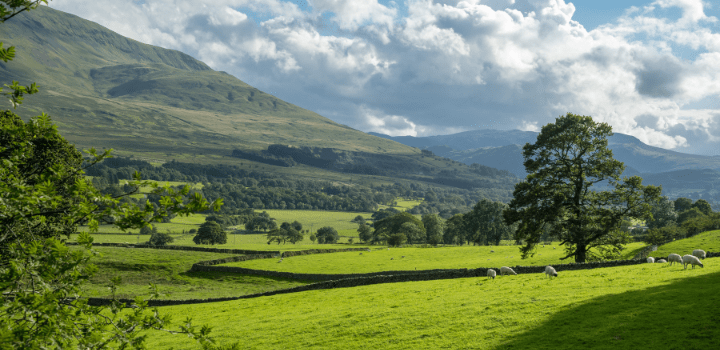This post is by Stephanie Morren, principal policy officer at The Royal Society for the Protection of Birds (RSPB).
Our world is in crisis. Biodiversity is in decline, with one in six species at risk of extinction in the UK. Global temperatures are rising, with very hot summers and very wet winters becoming more and more common. Few feel these impacts more than our farmers. Their ability to grow food is increasingly hampered by floods, drought, compacted soil and a lack of pollinators.
However, as 70 per cent of the UK is farmed, this sector also has a massive role to play in tackling these challenges. We know that biodiversity can provide multiple benefits to food production such as crop pollination, maintaining healthy soils, and natural pest control. Green infrastructure on farms such as hedges and trees can sequester carbon and help to alleviate flooding. But this requires investment. It requires farmers to have the support and tools they need to deliver all that is being asked of them, while maintaining profitable businesses.
In the run up to the UK general election, some in the environment sector were calling on the government to increase the budget for nature-friendly farming across the UK as a priority ask. In fact, it was one of the main asks in the recent Restore Nature Now march in London.
Now, as we enter the next parliamentary term with a new Labour government in Westminster, an independent economic analysis commissioned by the RSPB, The Wildlife Trusts and the National Trust, has been published. This is the most up to date evidence yet for how much investment is needed and how it needs to be spent.
We need investment into nature-friendly and low carbon farming The analysis shows an annual investment of up to £5.9 billion across the UK will be required for at least the next ten years in order to deliver our legally binding nature and climate targets, and secure the future of British farming. Proper investment from the government will also pave the way for private finance to further bolster the budget.
Importantly, this investment should be spent specifically on nature-friendly and low carbon farming. It needs to support farmers to provide habitats for wildlife and reduce carbon emissions which will increase resilience against political shocks (such as the war in Ukraine), climate shocks outlined above, and help recover nature and reach net zero.
Farming and environment policies are defined by the Scottish, Welsh and Westminster Governments and the Northern Ireland Assembly, but the agriculture budget is set by the UK Treasury. This study estimates the level of investment required in all four UK countries, but exactly how it is spent will differ across the UK countries depending on the details of the four new emerging agri-environment schemes, and the farming systems found in each country.
Increasing the budget is vital This report follows a series of previous ‘scale of need’ analyses, but for the first time takes account of the differences in farm type, size and profitability, and therefore gives a more realistic estimate for the investment needed. It shows that the current agricultural budget of £3.5 billion falls significantly short.
With a brand new Westminster Government and huge amount of funding needs to prioritise, making the case for more money will always be a challenge. However, this analysis clearly shows that increasing the agriculture budget to better support nature-friendly farming at scale, across all four countries of the UK, is absolutely vital – for farmers, for nature, and for the climate.
The decline in nature is predicted to result in a 12 per cent loss of UK GDP in the coming years, more than the impact of both the 2008 financial crisis and the Covid-19 pandemic. Meanwhile, unmitigated climate change is set to cost the UK billions each year. The longer we wait, the harder this will be to fix.
Read the full report here and for any further information and enquiries, please contact stephanie.morren@rspb.org.uk
Discover more from Inside track
Subscribe to get the latest posts sent to your email.
